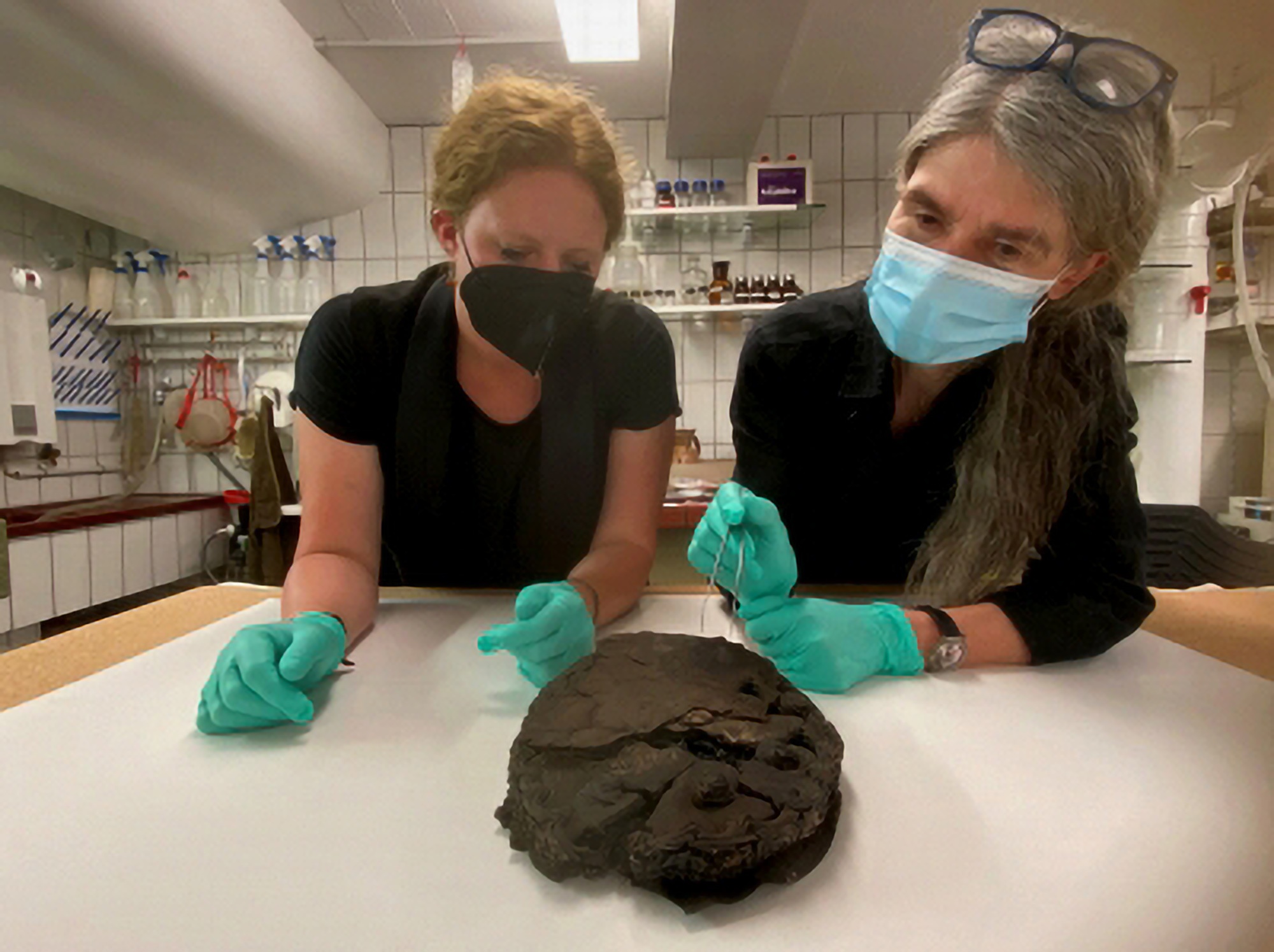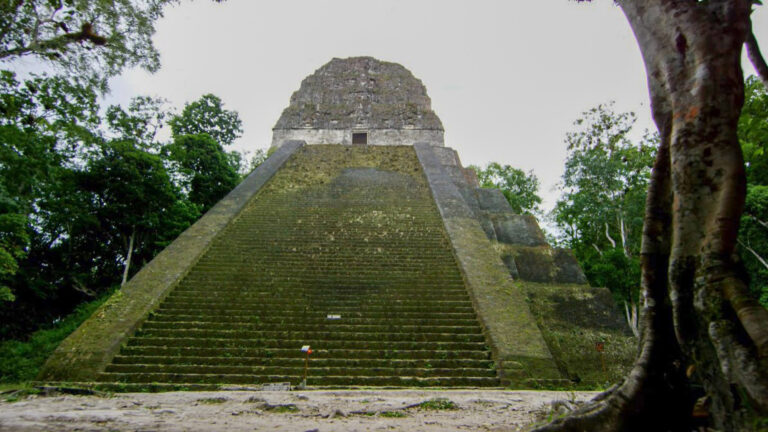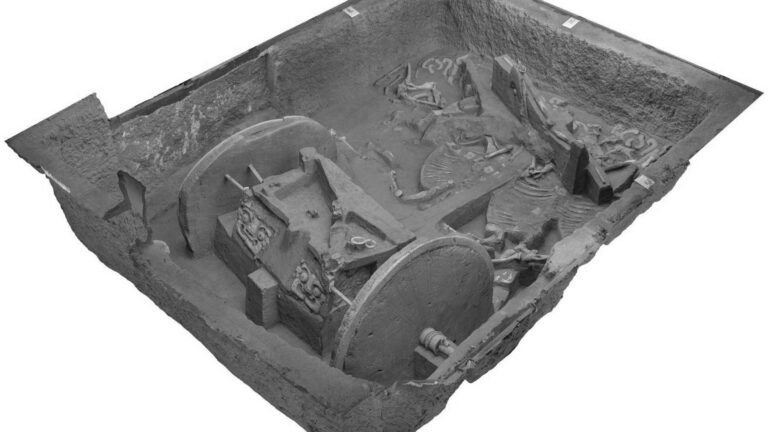A fossilised cake baked the day before Palm Sunday celebrations in 1942 has been unearthed nearly 80-years-later in the kitchen of a German home that was flattened by an Allied bombing raid during World War II.
The 79-year-old nut cake with a brittle coating was found in the German city of Lubeck by archaeologists who believe it’s been slowly fossilising in the kitchen of a home that was destroyed by Allied bombers in 1942 – the day before Palm Sunday.
The cake was unearthed last month (August) during an excavation on the site of a building that was destroyed during the war. They uncovered a cellar that contained the cake and other items including a complete coffee set and a gramophone record player.
The experts said that the family had apparently set things up for the Sunday Festival that never happened after the bomb struck, with the contents dropping through the floor into the cellar which was then covered by rubble until it was discovered during the modern-day excavation.
In Germany, archaeological teams are often called in to check locations prior to building work although the local council did not comment when asked about the reason for this particular excavation.
Since it was found, the cake has been carefully examined by experts who have confirmed that it was finely decorated around the edges and 80 years ago would have made a ‘great dessert’.
In a press statement made by the local Lubeck government, Lisa Renn, the local excavation manager, said: “It is heavily charred and blackened with soot on the outside.”
She added that it had “shrunk to only a third of its original height”.
The archaeologists were impressed nevertheless to find that after eight decades in a building that was heavily bombed the cake was still recognisable after falling together with the rest of the kitchen through the building’s floorboards.
The cake was protected for 79 years by the rubble and other debris that had fallen around it forming a protective wall around the nut cake.
Doctor Dirk Rieger, head of the city’s archaeology department, said: “In order to get to the bottom of the secrets of the cake, samples of the filling and the glaze were examined in the laboratory.”
She added: “This is currently the only archaeologically significant pastry uncovered in Northern Germany.”
The researchers looked into the city’s housing records and found that the house, on Alfstrasse 18, was owned by a merchant named Johann Warme when it was destroyed in 1942.
The archaeologists believe that the merchant and his family had probably baked the cake in preparation for Palm Sunday celebrations.
The kitchen was perfectly prepared for the celebrations with the coffee table laid out with the family’s most expensive cutlery and a gramophone had been set up with several records for the big day.
Reiger concluded: “It took 79 years for this special witnesses to the destruction of the city to come to light through this fragile material good.”
Once the researchers are done preparing the cake for preservation it will be displayed at an unspecified museum.
To find out more about the author, editor or agency that supplied this story – please click below.
Story By: Peter Barker, Sub-Editor: Joseph Golder, Agency: Newsflash
The Ananova page is created by and dedicated to professional, independent freelance journalists. It is a place for us to showcase our work. When our news is sold to our media partners, we will include the link here.





Absolutely fantastic posting! Lots of useful information and inspiration, both of which we all need!Relay appreciate your work.